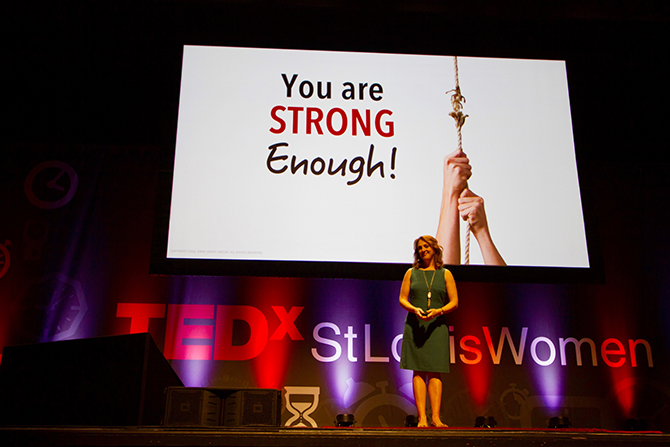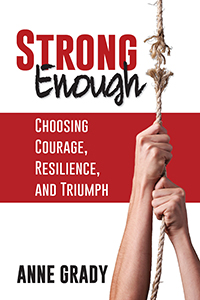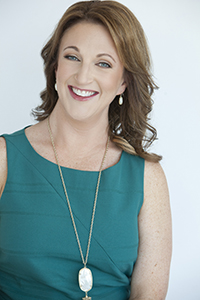ARE DISTRACTIONS EATING YOUR LIFE?
A Checklist To Help You Reclaim Your Mental Space

By Anne Grady
Face it, friends, we check our phones out of habit nearly every six minutes. Standing in line at the grocery store? Pull out your phone. In an elevator? Check those messages. Commuting on the train. Text your colleague that you’re almost there!
Did you know there are 260 million smartphones in use today in the U.S.—one for every adult, leading us to be more distracted than ever before? According to a recent study, Americans check their phones an average 80 times a day while on vacation, with some checking their screen more than 300 times each day. In addition to making us more distracted and prone to accidents, this also contributes to rising levels of stress as our attention is always pulled in different directions, leaving us unable to be present at the moment.
Each time we are distracted, it sets us back from what we are trying to accomplish. And for every time you are interrupted, it takes an average of 23 minutes and 15 seconds for your brain to get back on task, according to a report from UC Irvine titled The Cost of Interrupted Work: More Speed and Stress. Surprisingly this study is more than a decade old and was published shortly after Apple launched the first iPhone. A quarter of a billion smartphones later, we wonder how that is working out for us.

ALL IS NOT BAD
Not all distractions are damaging, however, as the authors of the UC study pointed out. Interruptions can be beneficial if they are related to the task at hand. But they can set you back when you are working on one job and interrupted by something completely unrelated. We all find ways to cope with this, and many distractions are, in fact, self-imposed. You may find it refreshing, for instance, to step away from a project to check the news or your email or that funny text a friend sent you. Or maybe you were among fans of HBO’s hit series Game of Thrones who chatted with friends about the show’s finale. It’s estimated engaging in office chatter about the series may have cost employers $3.3 billion in lost productivity. That’s just a fraction of the estimated $997 billion yearly cost to the U.S. economy attributed to lost productivity due to digital distractions. The solution? According to Udemy, an online learning platform, noisy, interruption-prone offices make employees unmotivated, stressed, and frustrated. It recommends employers could boost morale and profits by training employees to stay productive despite distractions.
I don’t want to come off as self-righteous. I confess I check my phone regularly and half the time I don’t even realize I’m doing it. And that’s the problem—when we unconsciously allow anything to interrupt our mental processes and potentially shift our mood, we are giving away our mental real estate.
Think about going on social media and seeing your friends’ carefree vacation photos when you are working. The next thing you know, you are telling yourself you are stuck at work and giving in to the proverbial FOMO—that’s fear of missing out. The second you do that, you relinquish control of your mood. And that can affect your entire day if you let it. Think about it: You wouldn’t just let someone move into your house without paying for it. So why are you giving away your mental space without being deliberate about who is taking it and what you are letting in?
GAINING CONTROL
I’m not suggesting you ditch your phone or get off all social media, but rather to take control. A sense of control reduces fear, anxiety, and stress. We don’t have to be ruled by the little screens or the constant urge to check them.
Here is a checklist to determine if you need to reclaim mental real estate:
Do you check your phone the minute you get out of bed?
You just gave someone else permission to be in charge of your brain. Shawn Achor, the author of The Happiness Advantage, notes that the first and last 30 minutes of the day are the times when you are most vulnerable to having your attention hijacked. By relinquishing control first thing in the morning, you spend the rest of the day trying to recover. Try spending the first 30 minutes of your day meditating, reading something uplifting, listening to a podcast, or doing something that elevates your mood. For the last 30 minutes, focus on relaxation, ditch the screen, and set intentions for the next day.
 Anne Grady
Anne GradyDo you find yourself habitually checking social media?
Our need to check status, likes, comments, and be in the know seeps mental energy. Social media can be great if it helps you connect with others and build relationships, but not when it starts impacting your mood or causes you always to compare yourself with others. Doing that is just waging mental war with yourself. The next time you find yourself heading for a social media fix, ask yourself if it is serving you.
Do you feel your attention being constantly drawn away from where you want to direct it?
The only thing you can control is where you attune your attention. When you are stressed, you are attuned to that. You can numb it by going on Facebook for an hour, but what have you accomplished? Practice being intentional and consciously choosing where you want to focus your attention.
Giving away mental real estate also happens when we ruminate about things we can’t control or wish we had done differently. It’s anytime you let someone or something live rent-free in your head, or dictate your mood or behavior. This is why meditation and mindfulness are so powerful. You are training your brain to direct attention where you want it, rather than where it goes by default.
Identifying the distractions in your life and thinking about them in a new way can help you to reclaim your mental real estate. After all, just because you can buy beer all day long does not mean you should be drinking it all day! It’s the same with all those things that compete for your attention. Own your mind, and you will be able to reclaim your attention.
For more information about Anne Grady, visit annegradygroup.com.
Resilience expert Anne Grady is an internationally recognized speaker and author. Anne shares humor, humility, refreshing honesty, and practical strategies anyone can use to triumph over adversity and master change. She is the author of Strong Enough: Choosing Courage, Resilience, and Triumph, and 52 Strategies for Life, Love, & Work.




